Filter by
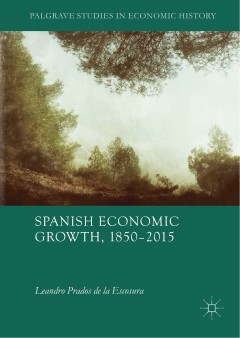
Spanish economic growth, 1850-2015
This text offers a comprehensive and nuanced view of the economic development of Spain since 1850. It provides a new set of historical GDP estimates for Spain from the demand and supply sides, and presents a reconstruction of production and expenditure series for the century prior to the introduction of modern national accounts. The author splices available national accounts sets over the perio…
- Edition
- -
- ISBN/ISSN
- 9783319580425
- Collation
- xxiv, 383p. : ill.
- Series Title
- -
- Call Number
- 330.9 DE s
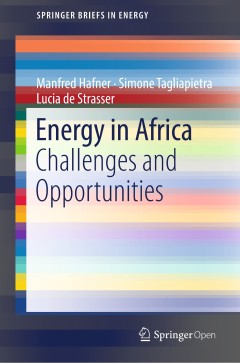
Energy in Africa : challenges and opportunities
This open access book presents a picture of the current energy challenges on the African continent (and the Sub-Saharan region in particular) and proposes pathways to an accelerated energy transition. Starting with an analysis of the status quo and the outlook for Africa’s energy demand and energy access, it provides an account of the available resources, including hydrocarbons and renewable …
- Edition
- -
- ISBN/ISSN
- 9783319922195
- Collation
- xx, 112p. : ill.
- Series Title
- -
- Call Number
- 333.7915 HAF e

Applying the Kaizen in Africa : a new avenue for industrial development
At present, how to develop industries is a burning issue in Africa, where population growth remains high and economic development has thus far failed to provide sufficient jobs for many, especially young people and women. The creation of productive jobs through industrial development ought to be a central issue in steering economic activity across the continent. The authors of this book, con…
- Edition
- -
- ISBN/ISSN
- 9783319914008
- Collation
- xx, 266p. : ill.
- Series Title
- -
- Call Number
- 338.6 APP a
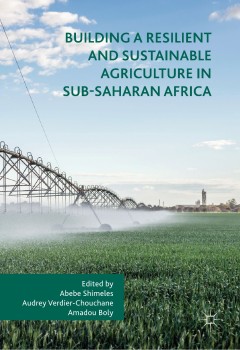
Building a resilient and sustainable agriculture in Sub-Saharan Africa
What are the challenges and action points for agricultural sustainability in Sub-Saharan Africa? This collection of papers offers technical analyses, policy recommendations and an overview of success stories to date. Each carefully selected paper provides valuable insights for improved policy making and defines relevant strategic priorities on Africa’s sustainable transformation process, whic…
- Edition
- -
- ISBN/ISSN
- 9783319762227
- Collation
- xxviii, 302p. : ill.
- Series Title
- -
- Call Number
- 338.1 BUI b
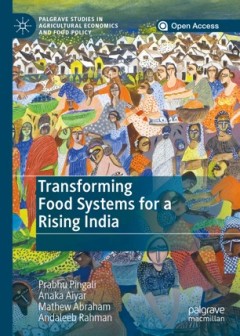
Transforming food systems for a rising India
This open access book examines India’s economic development, agricultural production, and nutrition through the lens of a “Food Systems Approach (FSA).” Despite economic progress, regional inequality, food insecurity and malnutrition persist. Simultaneously, recent trends in obesity and micro-nutrient deficiency indicate a future public health crisis. This book explores the challenges a…
- Edition
- -
- ISBN/ISSN
- 9783030144098
- Collation
- xxiv, 368p. : ill.
- Series Title
- -
- Call Number
- 363.85610954 TRA t
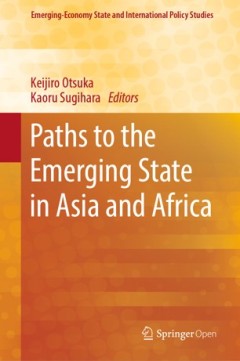
Paths to the emerging state in Asia and Africa
This book addresses the issue of how a country, which was incorporated into the world economy as a periphery, could make a transition to the emerging state, capable of undertaking the task of economic development and industrialization. It offers historical and contemporary case studies of transition, as well as the international background under which such a transition was successfully made (or…
- Edition
- -
- ISBN/ISSN
- 9789811331312
- Collation
- -
- Series Title
- -
- Call Number
- 338.90091724 PAT p
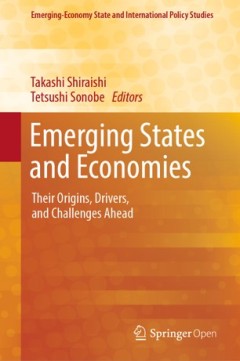
Emerging states and economies : their origins, drivers, and challenges ahead
This open access book asks why and how some of the developing countries have “emerged” under a set of similar global conditions, what led individual countries to choose the particular paths that led to their “emergence,” and what challenges confront them. If we are to understand the nature of major risks and uncertainties in the world, we must look squarely at the political and economic…
- Edition
- -
- ISBN/ISSN
- 9789811326349
- Collation
- x, 177p. : ill.
- Series Title
- -
- Call Number
- 338.9 EME e
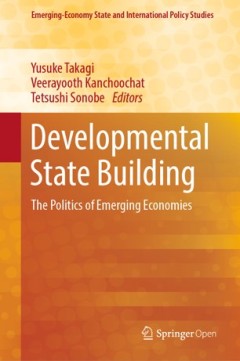
Developmental state building : the politics of emerging economies
This open access book modifies and revitalizes the concept of the ‘developmental state’ to understand the politics of emerging economy through nuanced analysis on the roles of human agency in the context of structural transformation. In other words, there is a revived interest in the ‘developmental state’ concept. The nature of the ‘emerging state’ is characterized by its attitude t…
- Edition
- -
- ISBN/ISSN
- 9789811329043
- Collation
- xiv, 185p. : ill.
- Series Title
- -
- Call Number
- 338.9 DEV d
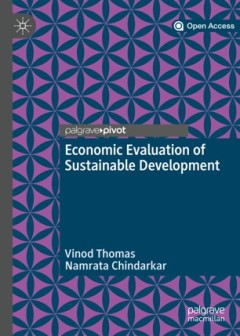
Economic evaluation of sustainable development
This book presents methods to evaluate sustainable development using economic tools. The focus on sustainable development takes the reader beyond economic growth to encompass inclusion, environmental stewardship and good governance. Sustainable Development Goals (SDGs) provide a framework for outcomes. In illustrating the SDGs, the book employs three evaluation approaches: impact evaluatio…
- Edition
- -
- ISBN/ISSN
- 9789811363894
- Collation
- xxiii, 145p. : ill.
- Series Title
- -
- Call Number
- 338.927 THO e
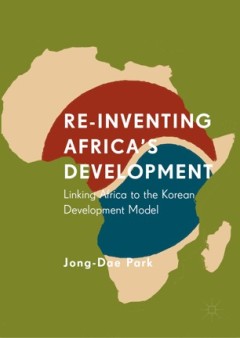
Re-inventing Africa's development : linking Africa to the Korean development …
This open access book analyses the development problems of sub-Sahara Africa (SSA) from the eyes of a Korean diplomat with knowledge of the economic growth Korea has experienced in recent decades. The author argues that Africa's development challenges are not due to a lack of resources but a lack of management, presenting an alternative to the traditional view that Africa's problems are caused …
- Edition
- -
- ISBN/ISSN
- 9783030039462
- Collation
- xxi, 449p. : ill.
- Series Title
- -
- Call Number
- 338.967 PAR r
 Computer Science, Information & General Works
Computer Science, Information & General Works  Philosophy & Psychology
Philosophy & Psychology  Religion
Religion  Social Sciences
Social Sciences  Language
Language  Pure Science
Pure Science  Applied Sciences
Applied Sciences  Art & Recreation
Art & Recreation  Literature
Literature  History & Geography
History & Geography